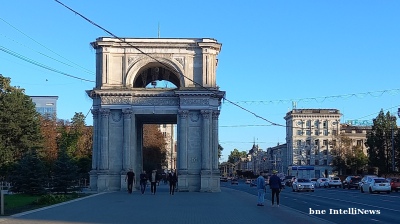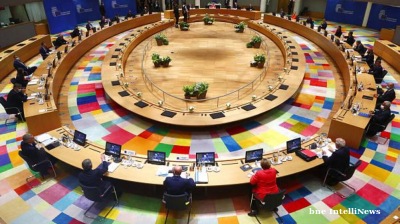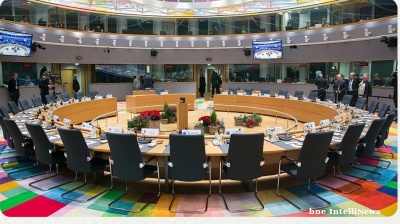Croatia has come a long way in the last decade and even more so since it started to rebuild its economy at the end of the Yugoslav war of the 1990s.
The country’s achievement of macro-economic stability, A-grade investment ratings and entry to both the Schengen area and Eurozone were the focus of a May 13 panel at the European Bank for Reconstruction and Development (EBRD) annual meeting in London.
Finance Minister Marko Primorac detailed the steps taken over the past decade, and outlined Zagreb’s future objectives including an overhaul of state owned enterprises (SOEs), accession to the Organisation for Economic Co-operation and Development (OECD) and revitalisation of the local capital market.
“Croatia is a story of a country that had to fight for its independence in the early 90s,” Primorac told the panel. “While other CEE countries were trying to attract FDI, Croatia had to rebuild its infrastructure and private sector, and create the democracy we have today.”
Now, the country boasts a stable, open economy, bolstered by eurozone membership and a favourable energy mix. “Croatia is an exceptionally stable, small, open economy with modern infrastructure and a favourable energy mix,” the minister added.
He pointed to structural improvements, including the elimination of macroeconomic imbalances, a decline in the public debt to GDP ratio, and a shift in the current account balance; for the last two years Croatia has been a net creditor to the rest of the world.
“Everything ends up with how competitive we are, because we are living in a global world where everyone is exposed to fierce competition,” said Stjepan Orešković, founder of Bosqar Invest, stressing the importance of being part of a “broader environment” as an EU member state.
Croatia’s sovereign credit rating has improved by five notches since 2016-17, and GDP per capita is now converging rapidly with the EU average, with the government aiming to reach 80% of that level by 2030. The government now aims to bring the country into the OECD in the first half of 2026.
“Croatia is much more than a stunning tourism destination. For years it has been a source of good quality projects across various sectors,” said EBRD director and regional head of Central Europe Miljan Ždrale.
Two Croatian-founded unicorns – tech company Infobip and electric supercar producer Rimac – were cited as evidence of the country’s entrepreneurial strength. Given the small size of the market, rather than buying unicorns, we aim to create them, said Robert Knorr, managing partner at private equity firm Mid Europa. “The secret of investing in Croatia and getting to the size we need is first to buy and build … the other ingredient is to invest regionally,” he told the panel.
One incentive for investment into Croatia is the country’s relatively low costs. As pointed out by Primorac, despite strong GDP growth, Croatia still has the lowest investment costs in the EU, at 36% below the EU average.
Some improvements are still required. Infrastructure remains a focus, with preparations underway for an overhaul of the country’s railway network. While the number of rail passengers is already increasing, the planned transformation will help Croatia fully exploit the potential of Rijeka and other seaports.
“Croatia has beautiful highways, and railways are now coming along,” said Ždrale of the EBRD, which has invested almost €5bn in Croatia since the start of its operations in the country.
The development bank’s current strategy for the country, which runs until 2028, has a focus on the green transition, supporting the private sector and developing its capital market.
The Croatian government is also pushing to revitalise the domestic capital market. Primorac acknowledged that “capital markets have been sleeping for a decade”, partly due to a loss of retail investor confidence after the financial crisis. He pointed to recent government retail bond and T-bill issues as a step toward rebuilding supply and trust.
A new strategy is now underway to work with other stock exchanges from the region, with the ultimate aim of advancing from frontier to emerging market status.
Primorac also addressed longstanding issues in state-owned enterprise (SOE) governance. “SOEs have been neglected for decades,” he said
Croatia has around 900 SOEs, most of which are owned by local government units, with around 50 under central government control. A new legislative framework aims to improve transparency and make the central government a more active owner, while moving away from reliance on privatisation.
Features

Trump eyes Bagram return, with China in his sights
In the years it was operational, 14 nations operated at, or through Bagram. In addition to the US, these included UK forces and elements from France, Germany, South Korea and more.

$23bn windfall for Kazakhstan as Beijing shifts up a gear on New Silk Road
Resource-rich Central Asian country emerges as a standout destination for Chinese investment.

US cancels Chabahar port sanctions exemption in blow to India's regional strategy
US terminates Iran Chabahar port sanctions waiver from September 29, jeopardising India's strategic trade operations and regional connectivity initiatives through the key facility.

INTERVIEW: Moldova seizes its moment
From rapid progress towards EU accession to the reconstruction of neighbouring Ukraine, factors have aligned to make Moldova an attractive FDI destination, says Invest Moldova head Natalia Bejan.




